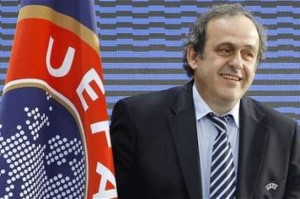The qualification format for Euro 2016 in France brings a unique twist, as revealed by UEFA on Wednesday. The main innovation is the introduction of a new formula where each “day” of qualifications will be spread over three evenings, allowing football fans to watch more matches live. This edition of the Euro, named after Michel Platini, will feature 24 teams instead of the previous 16, reflecting UEFA’s increased membership to 54 associations, including Gibraltar recognized in May.
The host country automatically qualifies, leaving 53 national selections to compete in the elimination phase. These teams will be drawn into nine groups of five or six. According to UEFA’s regulations for Euro 2016, “the nine group winners, the nine group runners-up, and the best third qualify directly for the final phase.” The criterion for determining the best third is based on points, with points scored against teams in sixth position not considered.
The remaining eight third-placed teams will engage in playoffs for the last four available places. Matches will be played according to the concept of a “football week,” allowing for flexibility in scheduling throughout the week, unlike the previous campaign for Euro 2012 that primarily took place on Tuesdays or Fridays. UEFA Secretary General Gianni Infantino emphasized that spreading the matches over several days would provide better visibility for the competition.
The first day of qualifying is scheduled for September 7-9, 2014, while the final day will be held from October 11-13, 2015. Matches will be played on various days, such as Thursdays and Sundays, Fridays and Mondays, or Saturdays and Tuesdays. The first leg play-offs are set for November 12-14, 2015, with returns scheduled for November 15-17. The qualifying draw is planned for February 23 in Nice, and the seedings will be based on UEFA national team coefficient rankings. The draw for the final phase of Euro 2016 is scheduled for December 12, 2015, in Paris, with the tournament taking place from June 10 to July 10.











